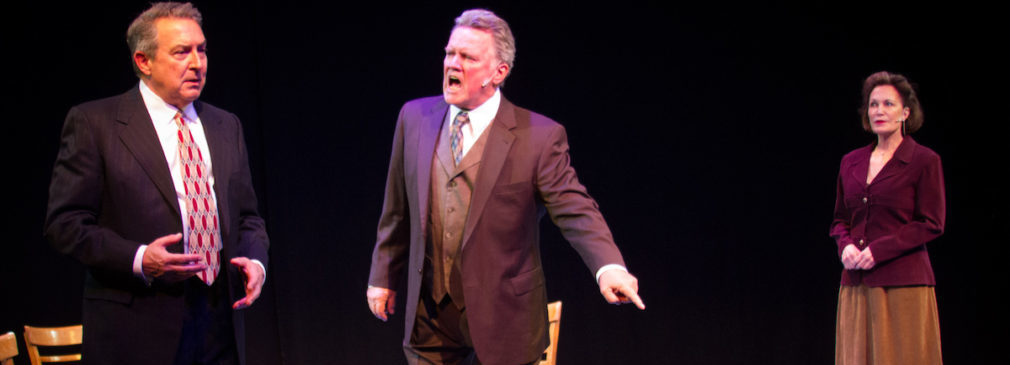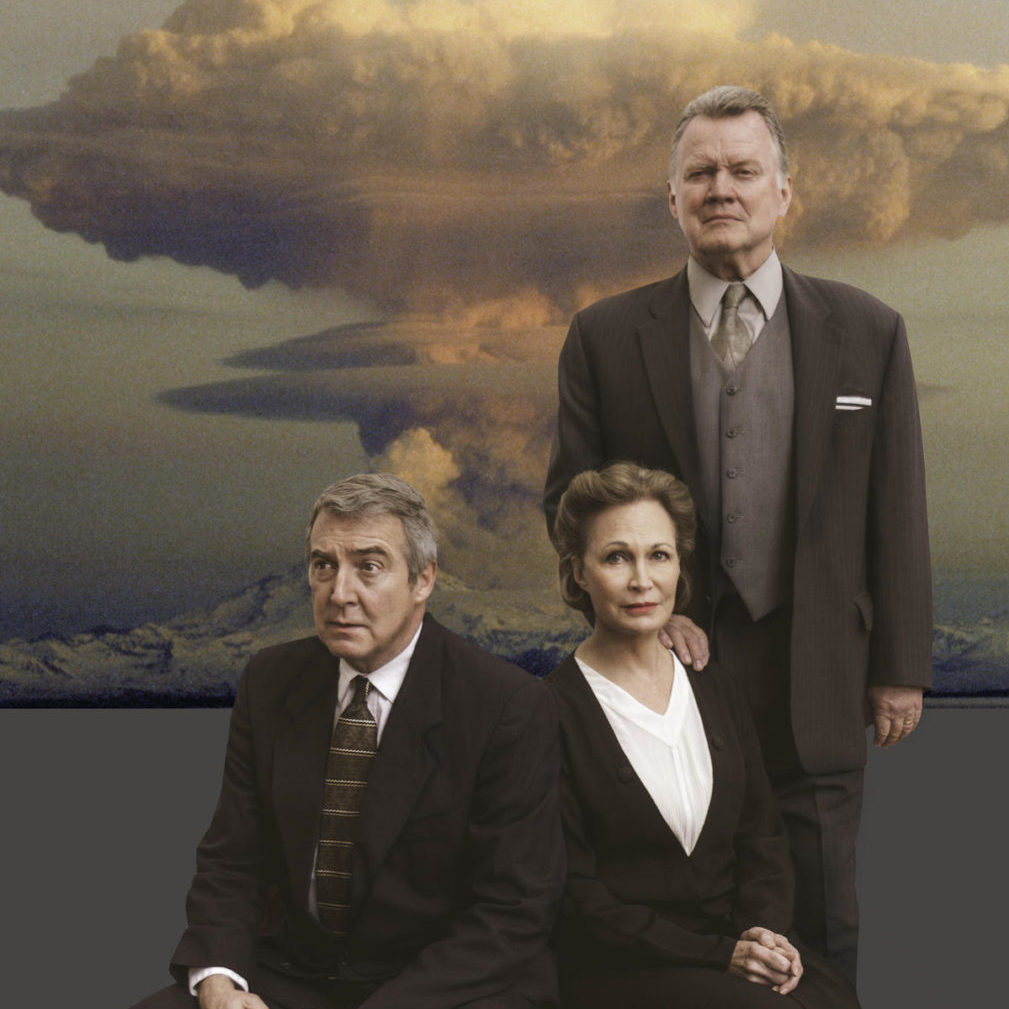
Share
The confluence of physics and politics are sometimes painfully difficult to keep apart. That simple, yet emotion-filled line offers valuable insight into the stage play “Copenhagen.”
Werner Heisenberg is part of a trio of characters in the thought-provoking play, which first debuted in 1998, was written by Michael Frayn and is currently running at the Austin Playhouse through April 28. No spoiler alert needed but just to let you know Heisenberg, and the other two characters, Niels Bohr and his wife Margarethe, also happen to be ghosts.
The set is sparse. The trio of characters uses just three chairs, yet the powerful dialog, the setting in Nazi-occupied Copenhagen in 1941, and questions over morality and country, leaves plenty for the audience to ponder.
“Copenhagen” is something of a conversation or reflection and series of monologues, between Bohr and his wife who are Danes and Heisenberg, who is German. Bohr and Heisenberg worked together in the early 1920s paving the way to discover the science behind the atom bomb. But the setting of the play is one particular evening in 1941.

Bohr and Heisenberg are mentor and mentee, longtime friends, and brilliant physicists. That last descriptor is quite evident in the fast-paced scientific dialogue that may have some in the audience getting the science humor and others stretching gray matter of their own to keep up. The banter about something that some might find dense is actually invigorating to witness. There’s creativity and passion in the challenge of physics. But if you found Physics 101 a stretch, do relax ‘cause the tale in “Copenhagen” is deeper than quantities of plutonium.
As mentioned, the characters are ghosts, and thus time is somewhat fluid. The story focuses on a real-life meeting between the three, in the fall of 1941 indeed in Copenhagen. The spirits of the Bohrs and Heisenberg struggle to remember just what happened that night, what was said, what was the intent, during a period of the holocaust where two scientists were on opposite sides of World War II, and the atom bomb is a puzzle to solve, or not. Heisenberg had been visiting, from Germany, that night. Their dialog ponders science, politics and morality. As the Austin Playhouse describes it, it’s a “search for an unknowable truth.”
Three highly skilled Austin actors star in this Playhouse production; Ev Lunning Jr. as Niels Bohr, Babs George as his Margarethe Bohr and David Stahl as Werner Heisenberg. Their stagecraft is critical, as the script is dense with mental science and math aerobics, of equations underscoring the brilliance and excitement of science. The actors verbally jockey between the science of the bomb but also the difficult moral questions of the time, humanity and love of country.
One last note – on opening night there was some breaking news with an announcement before the performance. The Austin Playhouse will be breaking ground on a new location soon, thanks in large part to a million-dollar anonymous donor. In time, and after more fundraising, Austin Playhouse will eventually move to 1717 E. Anderson Lane. From humble beginnings with just a three-play season, they are now in their 19th year and looking to grow even more.
Copenhagen runs through April 28th at Austin Playhouse’s current Austin Community College Highland Campus location.
For information on times and ticket prices go to austinplayhouse.com.
Cover: David Stahl, Ev Lunning Jr., Babs George. Photo Lara Toner Haddock
Nancy Miller Barton is an Austin-based freelance writer.














